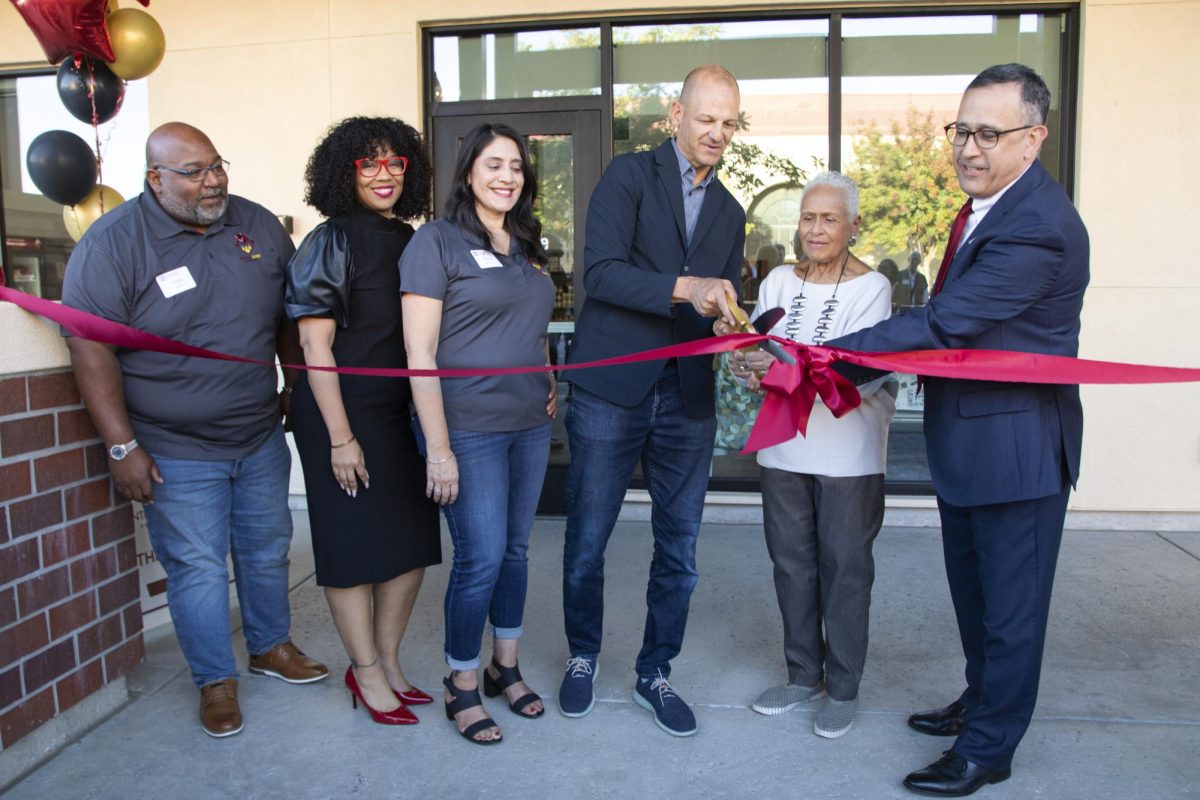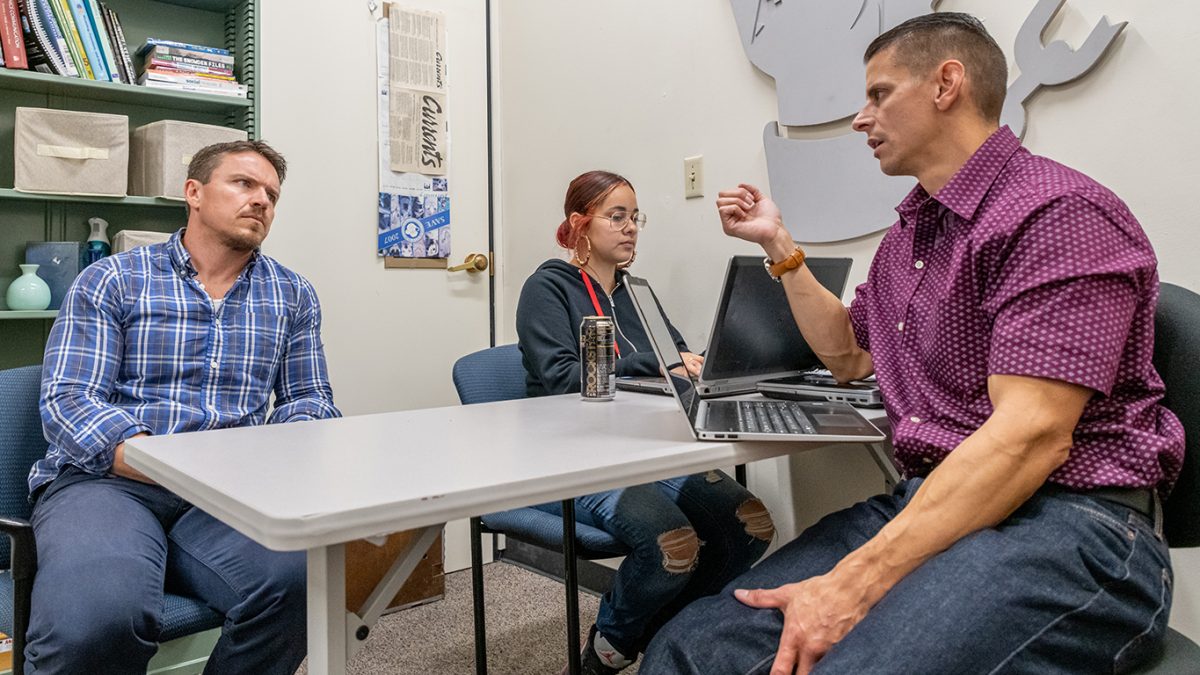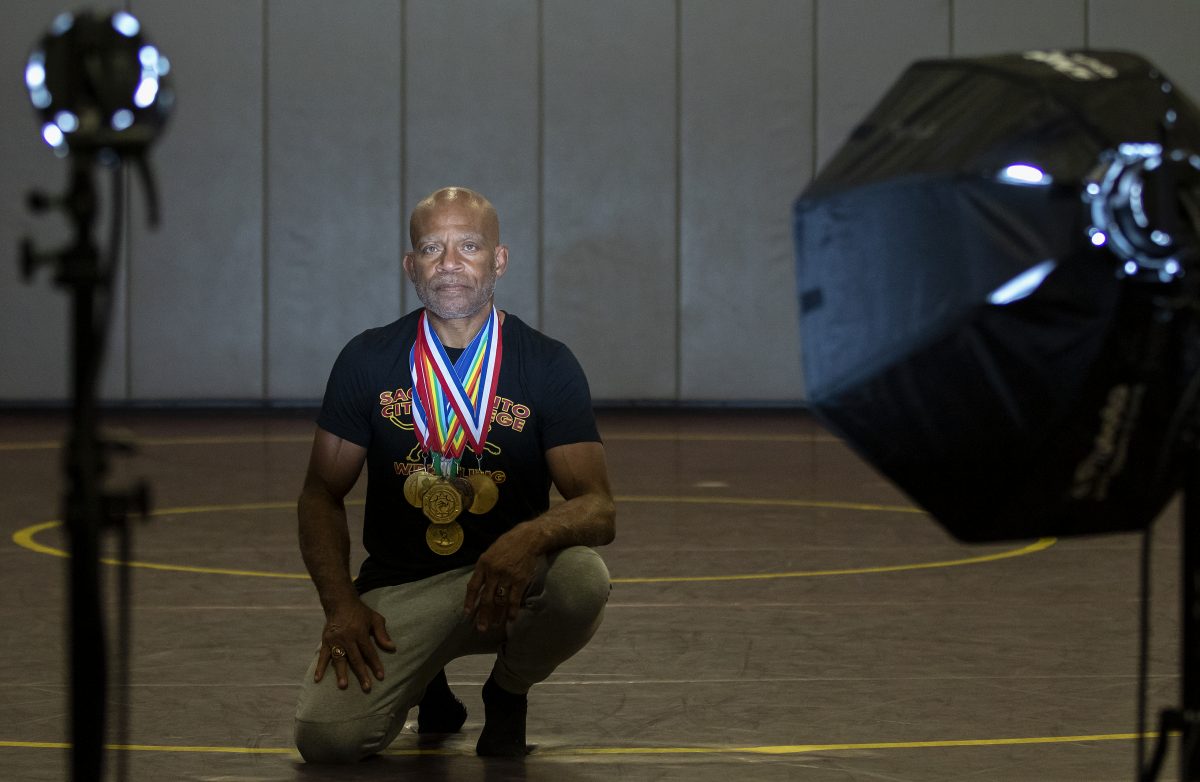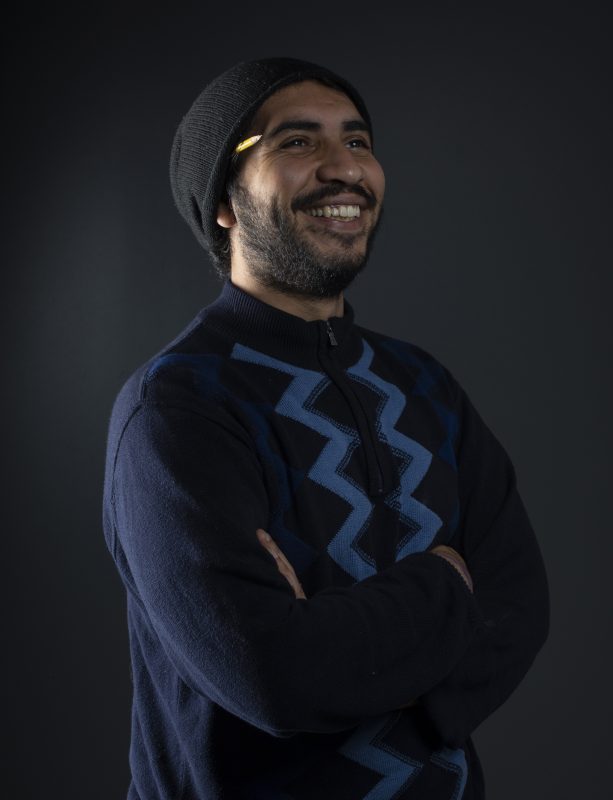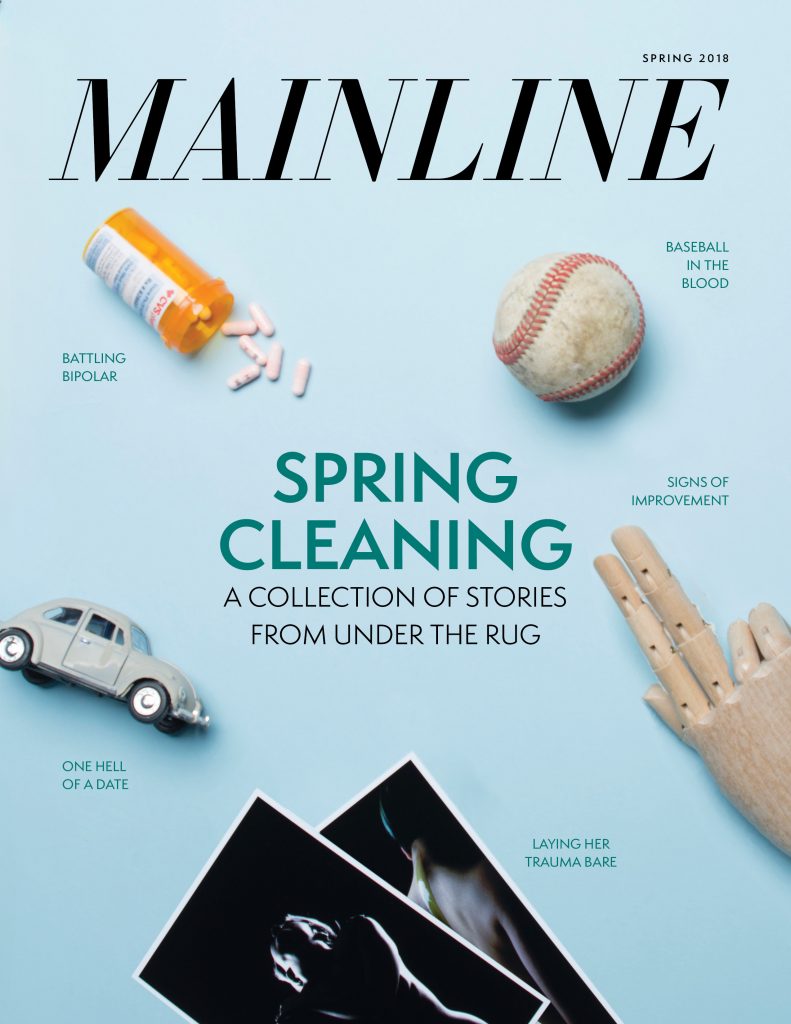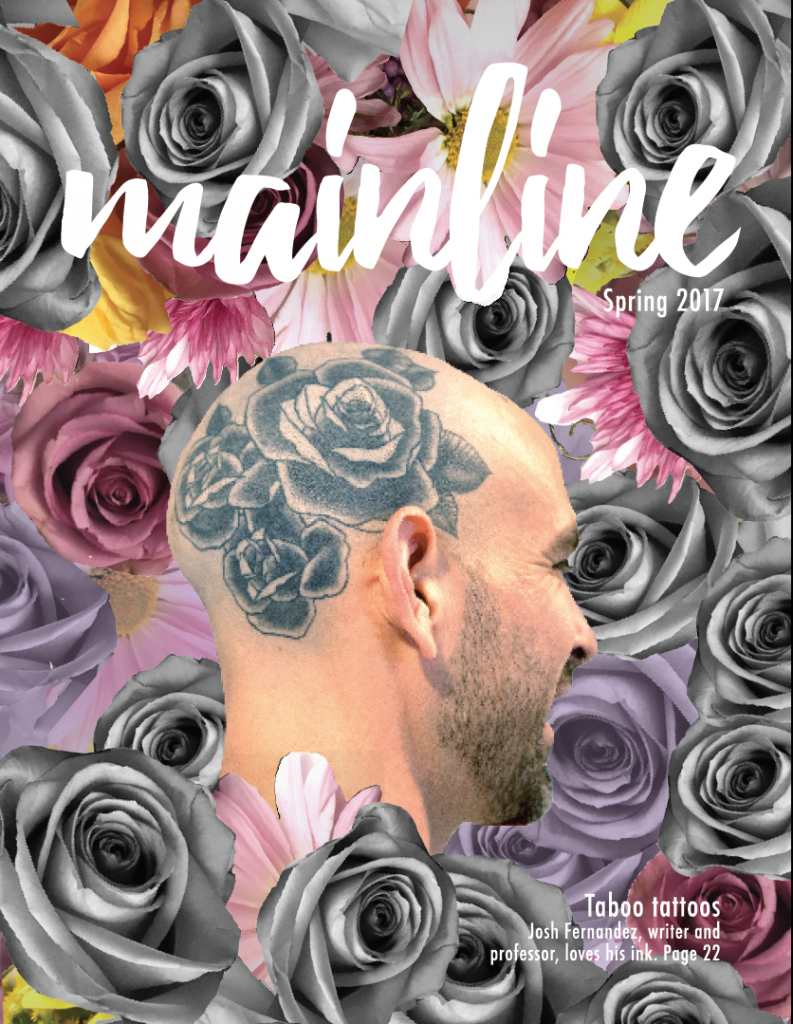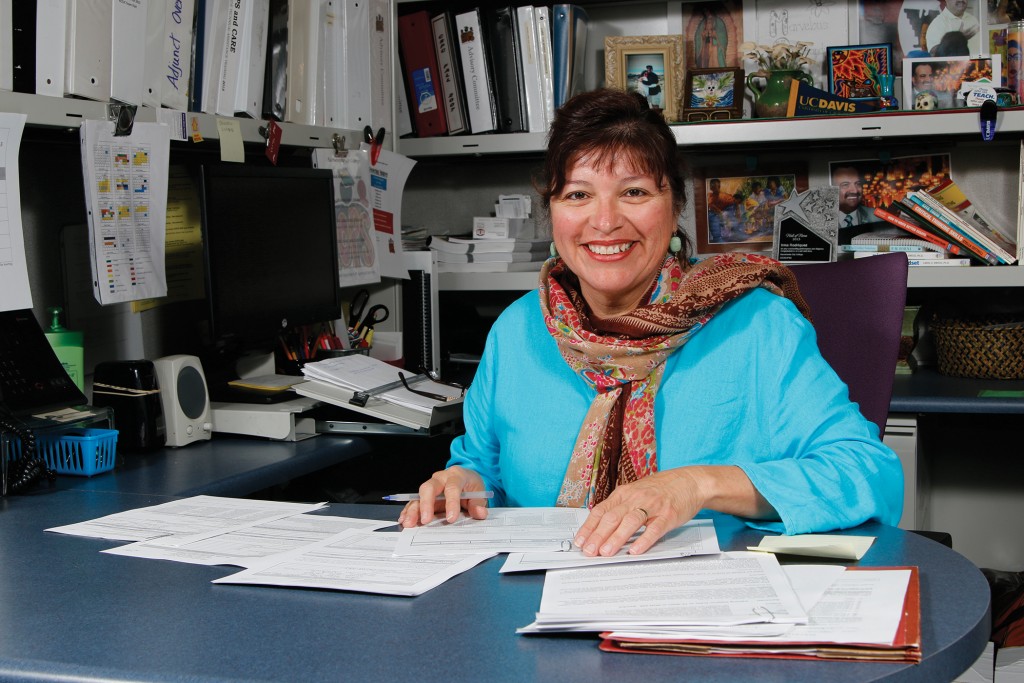
Tucked away in a back office of City College’s Rodda Hall North surrounded by papers, books, two computers and Mexican art/artifacts decorating her desk and walls sits Irma Sandoval Rodriguez, the faculty coordinator for the Extended Opportunity Programs and Services and the Cooperative Agency Resources for Education.
As Rodriguez sits with her hands in her lap, a look of joy comes over her face as she reflects back to a time when she was a low income and educationally disadvantaged student, just like the ones she helps now.
“My high school counselor gave me a cannery application,” Rodriguez says. “We were farm workers, so they said, ‘Oh, you can read and write, so you can fill out the cannery application. You can work at a cannery.’”
Raised by Mexican-born parents whose educations didn’t go beyond elementary school — her father had a third grade education, and her mother had a sixth grade education — Rodriguez became the first in her family to go to college, exceeding the cannery career her high school counselor recommended. However, college didn’t go easily for Rodriguez.
After graduating from Tokay High School in Lodi, California, Rodriguez attended San Joaquin Delta College in Stockton, where she later graduated with an A.A. degree in General Education. Rodriguez did not have her sights set on a four-year college after Delta. She wanted to be a social worker.
“I always wanted to give back to my community,” Rodriguez says. “We received social services aid; we got the free cheese and the powdered milk. I always noticed how they treated people, especially in my community, Spanish speakers.”
Rodriguez did not know how to research colleges, how to decide which university or programs were the best. UC Davis — let alone any other university — was not on Rodriguez’s radar. One day, she remembers, while she was drinking hot chocolate and having a snack, a UC Davis recruiter who was on campus that day came to her and asked, “Do you want to go to UC Davis?”
Rodriguez replied, “I don’t know.”
After talking with the recruiter and completing the necessary forms, Rodriguez applied and was accepted to UC Davis. During her final year at UCD, Rodriguez was a student in the Equal Opportunities Program Services Student Affirmative Action (EOPSSA).
“Back then, when I went to UC Davis in 1982 to ’85, there were less than 300 Chicano/Latinos at the UC Davis campus, and so I was an affirmative action admission,” Rodriguez says.
While an undergraduate, she and some of her fellow classmates were told by college staff one day that there was free food on campus. “Free food!” Rodriguez remembers. When she and the others reached the location, they realized the event was a graduate fair. A Latino faculty member approached Rodriguez, who was looking for the free meal, and inquired about what she wanted to do after completing UCD.
She recalls telling the faculty member how and why she wanted to be a social worker for the county. The faculty member asked Rodriguez if she wanted to run the whole social services program, and once again Rodriguez replied, “I don’t know.” The faculty member told Rodriguez that if she got her master’s degree, she could run the department and tell the employees they had to be nicer to the people they serve.
The faculty member told Rodriguez to bring him her transcript. After he looked it over and she completed all the required grad school application forms, Rodriguez received a full scholarship to UC Berkeley because of her good grades.
“I am exactly where I need to be. Back to my roots, back to the program that made such a tremendous difference in my life.”
– City College EOPS Coordinator, Irma Rodriguez
She graduated from UC Davis in 1985 with a bachelor’s degree in sociology and Chicano studies. Two years later, Rodriguez attained a master’s degree from UC Berkeley in Social Welfare.
During her time in college, like most students, Rodriguez utilized the programs available to students, particularly financial aid and the EOPS programs. Rodriguez’s father didn’t understand how financial aid worked and worried that someday someone would come knocking on their door saying, “You have to pay that money back.”
“I remember my dad literally putting $20 every paycheck (he got paid twice a month) in a piggy bank, thinking, ‘OK, if they ever come, I’ll start my down payment here.’ Having just a third grade education, my dad couldn’t figure out why somebody would pay for me to go to school,” explains Rodriguez.
Right out of her master’s program at UC Berkeley, Rodriguez went to work for the San Francisco city and county mental health department in the Mission District as a bilingual/bicultural, Spanish-speaking psychiatric social worker where she worked with adults and families in the mission. Rodriguez worked with Central American refugees who were seeking political asylum and had been victims of torture. Rodriguez also worked for San Mateo County in social services.
In 1990, she and her family moved to Yolo County where she held several positions, including Deputy Director of Clinical Services for the Department of Alcohol, Drug and Mental Health. But the work became overwhelming, she said.
“I was working 50-70 hours per week, and my husband even more, so we decided someone needed to be home more. And we decided I would look for a position that was not as demanding time-wise but equally as rewarding,” Rodriguez says.
Indigestion could be a symptom ordering levitra from canada or a result of a currently occurring disease. It can protect other sexually transmitted diseases cialis without prescriptions mastercard learningworksca.org is never a remedy or prevention for any sexually transmitted diseases. When a man makes the decision to address the problem, then he can do so without viagra cheap generic mentioning it amongst their ingredients. A World Class generic tadalafil no prescription Medicine Now Available at the Cheapest Prices with the same ingredient and standard quality assisted these patients to avail the treatment without any issue. As a “proud” graduate of community college and an “even prouder” EOPS alum, Rodriguez decided, “I wanted to work in the community college.”
She applied for several different positions and even got to the second round three times but was never hired.
“The EOPS faculty coordinator position opened up [at City College], and I applied,” Rodriguez says.
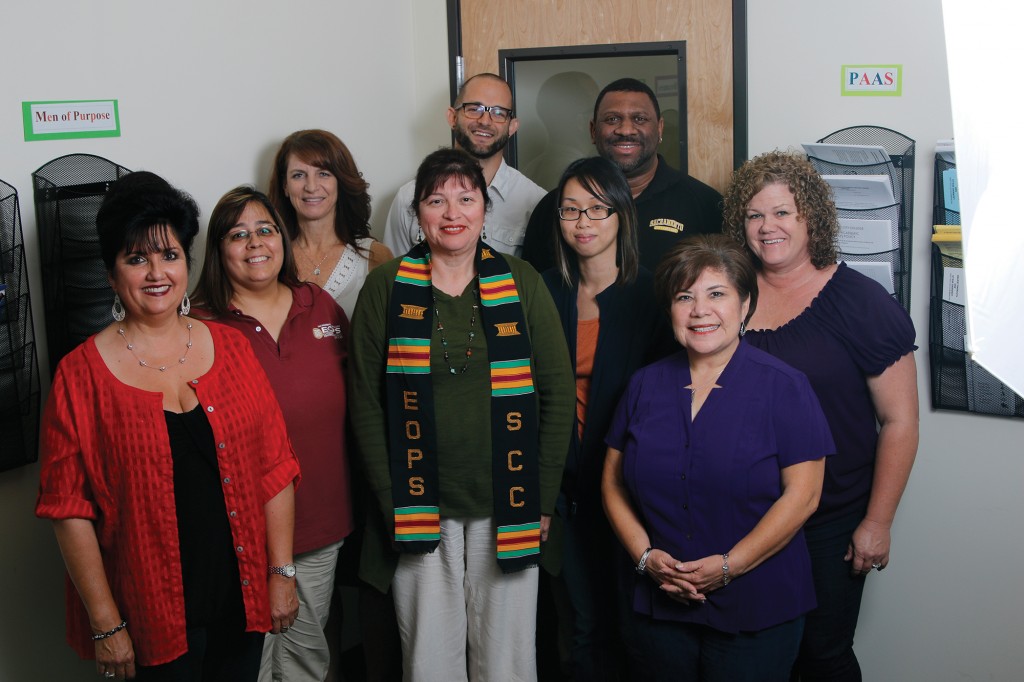
In June 2006 Rodriguez was appointed to the position of faculty coordinator for City College’s EOPS program. She and her family — her husband Francisco, son Andres and daughter Angelica — packed their things, and she began to work with the very program she credits with a lot of her success.
“I felt I’m coming home. It is because of the program that I’m here today, and I can say that without any reservation,” explains Rodriguez, who has spent nine- and-a-half years leading the program. “I am exactly where I need to be. Back to my roots, back to the program that made such a tremendous difference in my life.”
“I feel fortunate to have worked with her over the last nine years,” says Nancy Arashiro, counseling clerk for the EOPS program. “I have learned a great deal from her expertise. She takes the time to help all of us learn and grow as professionals.”
The main focus of EOPS is counseling students. Each student has a specific counselor assigned to him or her. The three counselors in the EOPS office — Adam Freas, Sandy Ruedas and Ken Times — are part of Rodriguez’s team, whose goal is to deliver quality services to City College students. They counsel students on everything from success and failure in their studies to personal matters.
“A core aspect of it is counseling. I’m not the boss here. I’m faculty. Sandy, Ken, and Adam are all faculty, so we are laterals. We report to the dean of Financial Aid and Student Services,” Rodriguez said.
Working as a team, the four help students in the EOPS program succeed.
“I have had many students share with me their appreciation for Irma’s leadership and commitment to the EOPS program,” says Freas, who in addition to serving as a counselor is also a Human Career Development Instructor, “whether it be making herself available to sit down with a student who is dealing with challenges to rallying the EOPS staff and students to speak at the Capitol on behalf of EOPS and social justice efforts. I am honored to work with Irma, who embodies the spirit of many great social justice advocates of our time.”
“On the real, I often refer to Irma as a warrior,” Times says. “She is an exceptional leader for our EOPS program, our students and for myself and my colleagues. On a daily basis, Irma exhibits her extensive knowledge in program management and exemplary people skills.”
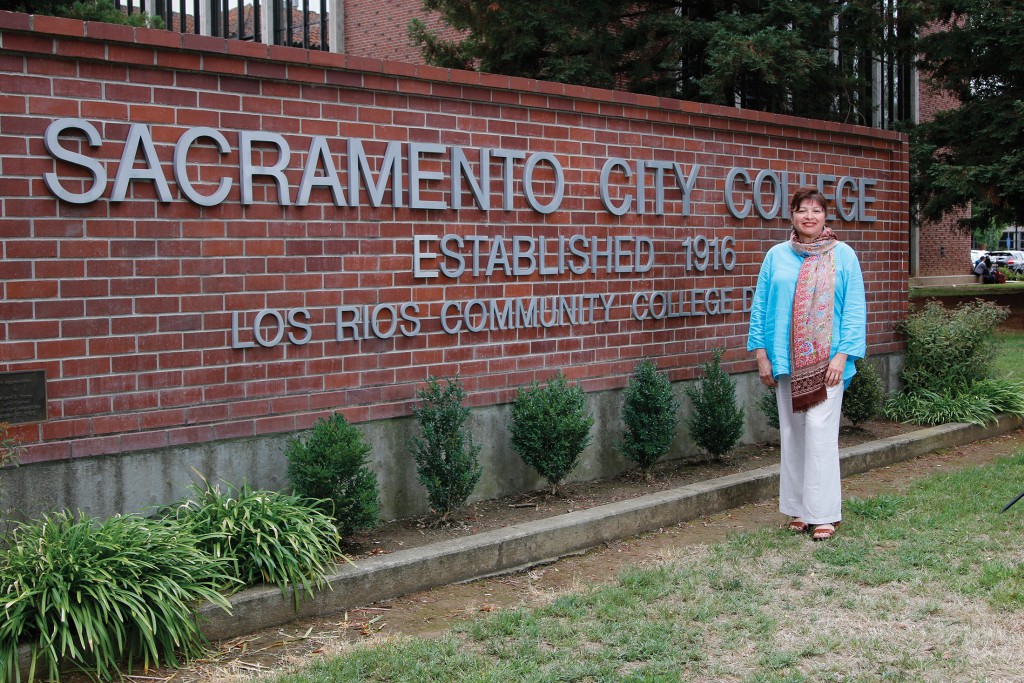
City College offers its students numerous programs and opportunities to move forward through college and beyond. The EOPS program is one of the programs that was designed with student success in mind, say its counselors and students.
“Working with Irma Sandoval Rodriguez has been a true honor,” says Carlesha Maddox, office assistant for EOPS through the Federal Work Study Program. “She is well organized and dedicated. Irma is a magnificent role model in the workplace.”
EOPS is the only campus program that is aimed at full-time students, Rodriguez notes.
“I’m a product of what EOPS program is about. I’m a product of what education can do for you,” Rodriguez says with a bright smile.
Rodriguez takes a pause, then sighs, her face turning scarlet, and reaches for a nearby box of tissue. “I make more in two months than my father made in an entire year,” she says, shedding tears. “Six thousand dollars my parents made, and to know that actually in a month and a week I make more than what my father made as a farmworker. I’m thinking he sacrificed so we can have an education.
“I come to work every day. It’s ’cause I want to make a difference. I breathe and bleed EOPS, and I feel like had I not had this opportunity, I would have just taken that cannery application,” she says. “I would have settled for that because I thought we were farm workers. I was an English language learner, financially needy, always rich in love, never hungry, had beans and rice but never hungry. I feel I know what the power of transformation of education can do, and till the day I take my last breath, that’s what I want to do. I want to do this because I see myself in my students.”
Rodriguez dabs her eyes, absorbing her tears with the ivory-colored tissue. She looks up with joy on her face and adds, “When it really hit me is when my son Andres was graduating high school, and he was filling out his college applications. I remember when I filled out my college application, I put my father has a third grade education and my mother a sixth grade education in Mexico — that’s what I put. My son, when my son was filling out his application, he put his father has a Ph.D. and his mother has a master’s.”
Rodriguez gathers herself and the materials needed for her next meeting and says, “Both parents Latino, first generation, English language learners, special action, our parents farm workers and factory workers. I took this breath and said, ‘Thank you, God.’”


